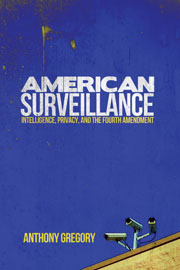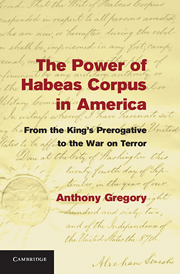A military judge has announced a verdict in Bradley Manning’s court martial: not guilty of “aiding the enemy,” but guilty of 20 other counts, including five offenses against the Espionage Act. The sentencing hearing begins on Wednesday.
The “aiding the enemy” accusation presumed that Manning’s distribution of classified material assisted al Qaeda. Actually, the information helps Americans by exposing U.S. war criminality.
In early 2010, WikiLeaks published a video, Collateral Murder, featuring July 2007 footage procured from Manning, showing American troops firing upon a journalist and two Reuters employees in Baghdad and revealing their nonchalance about children in the crossfire. WikiLeaks later published hundreds of thousands of diplomatic cables it obtained from Manning. We learned that in 2006, U.S. troops executed ten Iraqi civilians in Ishaqi, including a five-month-old, and called an airstrike to obliterate the evidence. Other material exposes al-Maliki’s corruption in Iraq, hundreds of previously unreported civilian deaths at the hands of U.S. allied forces in Afghanistan, friendly fire incidents, violent covert operations, and detainee mistreatment at Guantánamo.
War criminality ranks among the most important types of government wrongdoing warranting transparency. We cannot debate foreign policy without knowing about its indecencies. What U.S. forces do abroad can endanger Americans at home. Some see the leaks, not the crimes, as the true scandal, but the Muslim and Arab world already know of these atrocities. The American people need to understand what U.S. occupations are like.
Running for president in 2008, Barack Obama promised unprecedented transparency and protection for government whistleblowers “willing to speak out,” hailing their “courage and patriotism, which can sometimes save lives.” Recently, this language was removed from his website.
Indeed, in response to the leaks, the Obama administration has detained Manning since May 2010—for almost three years before the private pled guilty to 10 charges this February. For eleven months, Manning endured a particularly cruel form of solitary confinement in a windowless 6’x12’ cell for 23 hours a day under constant surveillance, where an official asked the question “Are you OK?” every five minutes. Over 250 legal scholars protested this treatment in an open letter.
Nearly a year of draconian solitary confinement followed by two years of pre-trial detention does not satisfy due process, constitutional speedy trial guarantees, and prohibitions against cruel treatment. Some attorneys have cited the exclusion of exculpatory evidence and denial of relevant defense witnesses as indications of the “railroading” of Manning. At the last minute, the judge even assisted the prosecutor in modifying the charges. The aggressiveness has suggested a political motive to silence those who expose government wrongdoing.
As for the Espionage Act, it passed months after U.S. entry into World War I, America’s low point for civil liberties. The law could ensnare anyone who has spread along information tenuously related to national defense. Along with its sister legislation the Sedition Act, which doomed people to prison merely for criticizing the war, the Espionage Act is an embarrassing relic from a dark time.
Daniel Ellsberg, who leaked the Pentagon Papers, exposing numerous administrations of lying about their Vietnam War intentions and revealing the secret bombing of Laos and Cambodia, faced non-espionage charges under the Espionage Act. A judge dismissed the charges. Ellsberg has identified Manning as his modern counterpart. He has said he’s “sure that President Obama would have sought a life sentence in” his own case, and called the president an “elected monarch.” In an interview with Scott Horton, Ellsberg reacted to the “aiding the enemy” acquittal positively, warning that if leaking information to the Internet is a capital crime, it would spell the “death knell” for investigative journalism.
Aside from Ellsberg, two other men faced Espionage Act charges before Obama—one under Reagan and another under George W. Bush.
The current administration is in its own class. In charging Edward Snowden, the former NSA contractor who, inspired by Manning, revealed the near unlimited nature of warrantless spying on Americans and foreigners, the Obama executive branch has now charged eight people of leaking information under the Espionage Act—more than twice the number of people so charged in earlier presidencies combined.
Obama’s crusade against leakers, as well as against, in at least one case, a journalist for normal journalistic behavior, creates an ominous chilling effect. James Goodale, the counsel for the New York Times in its Supreme Court struggle over the Pentagon Papers, predicts that “President Obama will surely pass President Richard Nixon as the worst president ever on issues of national security and press freedom.”
This is the administration: Nearly unparalleled secrecy, daily scandals, a surveillance state unbound by law, unilateral presidential wars, indefinite detention, the power to kill any terrorist suspect anywhere without a hint of due process, a politicized regulatory state collecting limitless data and harassing political opponents at home, and the persecution of whistleblowers using an anachronistic law from the darkest days of American civil liberty.
The national security state and its leader demand scrutiny. In the long term, Americans should fear their own government more than foreign terrorists. The federal government is a menace not just to life but to liberty. None too soon, a poll shows more Americans worried about civil liberties violations than terrorism.








